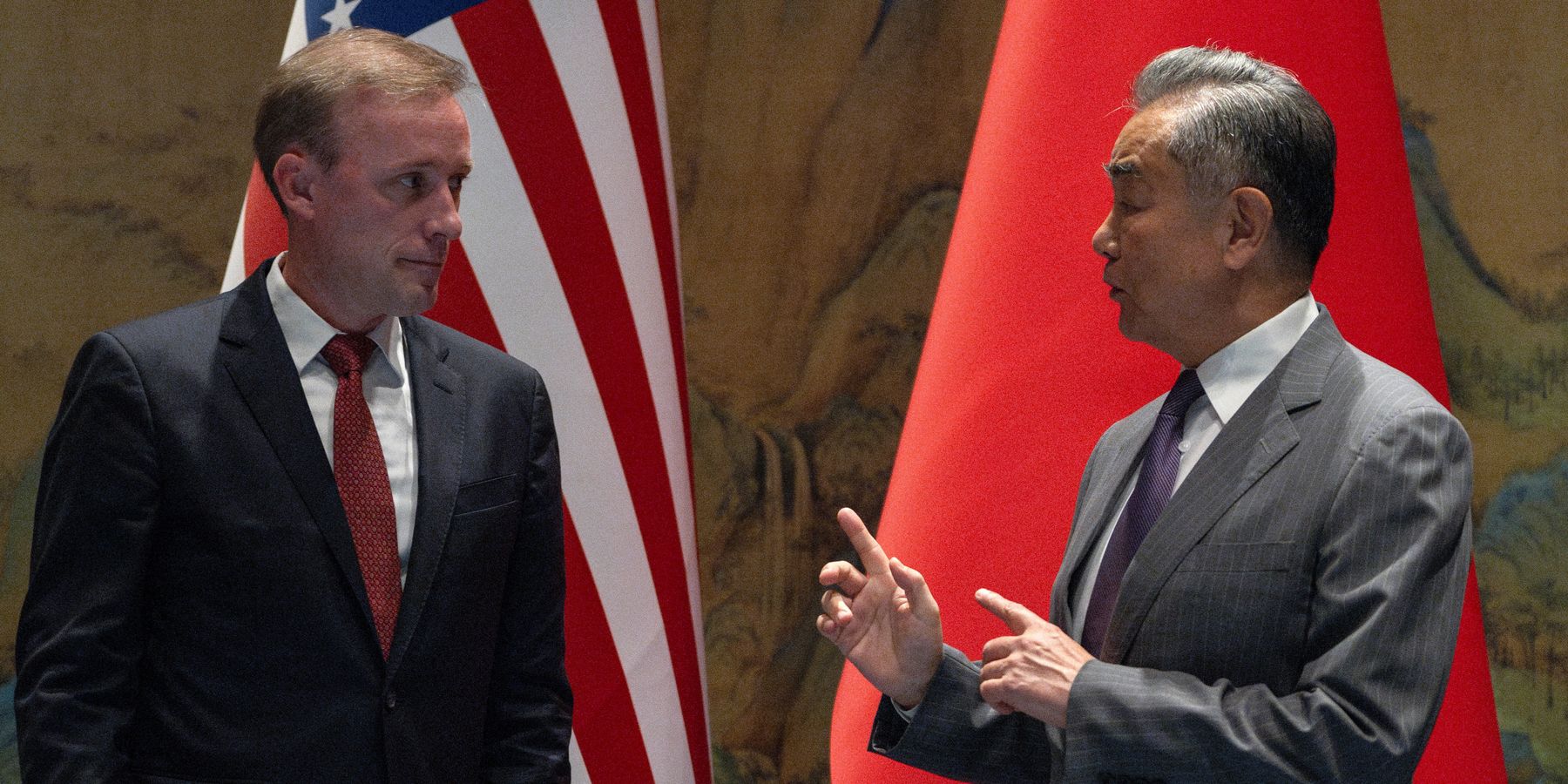Jake Sullivan is in China on his first official visit since his appointment as national security adviser and is expected to meet with Wang Yi, the Chinese foreign minister, to help clarify “misperceptions” and avoid “competition” from “veering into conflict,” according to the administration.
Within this framework, the Sullivan-Wang meeting is expected to cover a range of issues, from thorny areas of difference, such as Taiwan and trade, to bilateral cooperation initiatives building upon agreements made at last November’s Biden-Xi San Francisco summit, according to a State Department briefing on Friday.
Meanwhile, the Chinese Foreign Ministry said in its own briefing that Beijing will lay out “serious demands on issues related to the Taiwan question, the right to development, and China's strategic security” during the meeting, which is expected to take place through Thursday.
Beijing’s stress on the Taiwan issue does not come as a surprise, given its strong reactions to Taiwan’s newly elected president Lai Ching-te’s controversial inauguration speech, as well as Washington’s $8 billion military aid package to Taiwan.
Following Lai’s election, the Chinese government threatened to seek the death penalty for “diehard” Taiwan independence “separatists” in China. Whether that threat actually materializes remains far from clear, but it certainly reflects heightened concerns about the issue in the Chinese government.
While Taiwan is expected to be discussed at the summit, the conversations likely won’t go beyond reaffirming existing positions on the matter.
Michael Swaine, a senior fellow at the Quincy Institute, observes that the likeliness of these dialogues leading to substantive change is often hindered by both sides’ inability to be forthcoming on their motivations or goals for future cooperation, especially on sensitive security issues.
For example, “the issue of Taiwan and the continued lack of sufficient clarity on the intentions of both the U.S. and China clearly demonstrate a large risk that has yet to be managed by either side effectively to avoid future conflict,” says Swaine.
According to Swaine, “both sides are still heavily investing in military capabilities to presumably deter the other, without providing durable and credible assurances of each side’s continued fealty to the original understanding that provided peace across the Taiwan Strait for decades: for Beijing, peaceful unification as a first priority, and for Washington, the One China policy.”
Swaine added: "Without meaningful progress in reinforcing such mutual reassurances, the two sides will likely continue to struggle to conduct a truly strategic dialogue for defining what a stable, constructive pattern of peaceful coexistence, competition, and cooperation should look like over the long term."
Friday’s background press briefing hinted that rather than aiming for narrowing differences on big issues such as Taiwan, Washington might intend to focus on more specific, smaller-scale subjects covered at the Biden-Xi San Francisco summit — e.g., improved risk management and safety for artificial intelligence, improving military-to-military communications, and counternarcotics cooperation.
While strengthening communications appears to be part of the agenda, there is no indication that it will produce any progress towards institutionalized, persistent bilateral strategic dialogues, nor is it apparent that doing so would be the goal of the meeting for either side. Both sides have expressed a desire for improved communications, and this meeting is a further manifestation of those intentions.
Nonetheless, the timing of the meeting just before the election is worth noting. The Biden administration is essentially looking at one of its few remaining opportunities to solidify its self-proclaimed policy successes in East Asia — at the center of which is an “intense yet managed” competition with China.
In doing so, the Biden administration might be seeking to both protect the Democratic Party’s electoral position, and set a basis for a China policy which the next administration, whether under Harris or Trump, can build on.
“The Biden administration inherited a set of antagonistic but poorly systematized policies on China from the Trump administration,” says Quincy Institute acting East Asia director Jake Werner. “It kept almost all of those in place and made them stronger. But administration officials want to restrict China without starting a war, so they also restarted talks. One goal here is to guard against a new spiral toward conflict should Trump return to the presidency.”
Both Washington and Beijing have an incentive to seek closer communications during the upcoming U.S. election to reduce the fallout and misperceptions from heightened anti-China rhetoric aimed at the U.S. domestic audience. Such misperceptions in 2020 led to Chinese concerns that the U.S. was preparing to attack China during the 2020 election, which obviously didn’t happen.
Meetings like this one can be valuable for gaining clarity on policy and reasserting the desire of both sides not to provoke conflict. However, there is a risk of complacency if talks continue to avoid the underlying drivers of tension. “The pressures are building up,” Werner says. “The U.S. and China should be discussing the zero-sum forces pushing them toward conflict now. Because when a crisis comes, it will be too late.”
Consistent high-level meetings like these need to create more opportunities to confront the issues dragging the two nations toward conflict. Time is running out before the end of the Biden administration, however, leading experts to think that the chances for moving any of these dialogues forward in any meaningful way are fairly low.
.
















